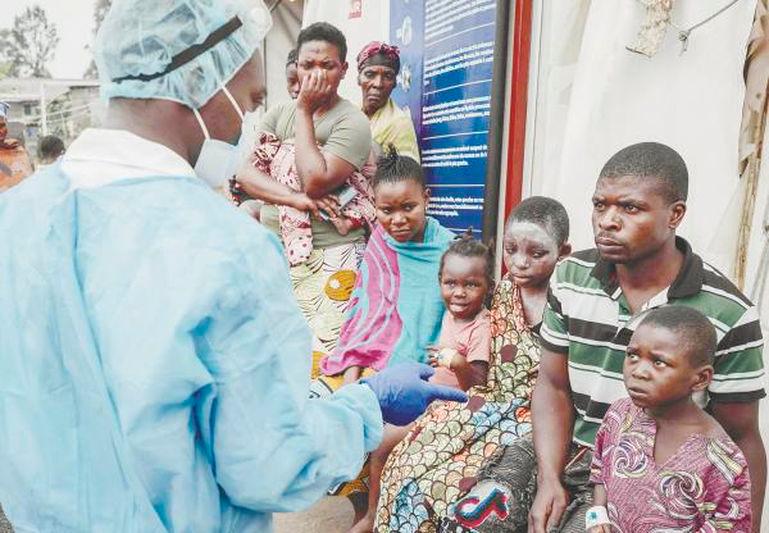WHO Director-General Dr Tedros Adhanom Ghebreyesus has declared a public health emergency of international concern under the International Health Regulations (IHR) (2005) after the recent upsurge of mpox, formerly known as monkeypox, in the Democratic Republic of the Congo (DRC) and more than 13 neighbouring countries in Africa.
There have been 27,000 cases and more than 1,100 deaths, mainly among children, in DRC since the outbreak began in January 2023. A deadly new strain of the virus was detected in Sweden and in Pakistan in the last weeks.
“The current upsurge of mpox in parts of Africa, along with the spread of a new sexually transmissible strain of the monkeypox virus, is an emergency, not only for Africa, but for the entire globe.
“Mpox, originating in Africa, was neglected there, and later caused a global outbreak in 2022. It is time to act decisively to prevent history from repeating itself,” said IHR Emergency Committee chairman Prof Dimie Ogoina.
With the experience of Covid-19, national and global players dealing with healthcare emergencies seem to be better equipped to stop any possible pandemic.
The virus enters the human body through skin wounds or the airways. It can spread through close contact with an infected person or animal, including touching skin lesions or being in close proximity while talking or breathing.
Mpox virus can infect a wide range of mammal species, including monkeys, anteaters, hedgehogs, prairie dogs, squirrels and shrews.
The virus can spread via contaminated objects such as surfaces, bedding, clothing and towels as the virus enters the body through broken skin, the respiratory tract or the eyes, nose and mouth.
The viral infection causes a painful rash, enlarged lymph nodes and fever. Unlike the AIDS virus, mpox does not have direct and long-term effects on the immune system. Except in severe cases, where the infection can be fatal, recovery typically occurs within two to four weeks.
The modes of transmission and the risk levels of different mpox clades during past outbreaks, mainly in Africa, have not followed a specific pattern. Caused by an Orthopoxvirus, mpox was first detected in humans in 1970, in the DRC. There is no treatment for mpox but some antiviral drugs have been recommended.
The WHO has deployed emergency measures to various countries while vaccine manufacturers are collaborating with partners through the interim Medical Countermeasures Network to ensure equitable access to vaccines, therapeutics, diagnostics and other essential tools.
A vaccine for mpox, introduced during the 2022 outbreak among Western populations, did not fully prevent the spread or recurrent infections.
However, the emergence of newer strains necessitates updated preventive plans and the development of more effective vaccines.
Individuals are advised to maintain personal hygiene and cleanliness. Regularly washing the face and hands as well as rinsing nostrils and mouths, especially after returning from public places, will reduce the risk of infection.
Anyone having a fever accompanied by rash should consult a doctor immediately. Properly treating minor injuries with appropriate medical dressings can also reduce the risk of infection.
The writer is a professor at the Department of Oral and Craniofacial Sciences in the Faculty of Dentistry, Universiti Malaya.
Comments: letters@thesundaily.com









